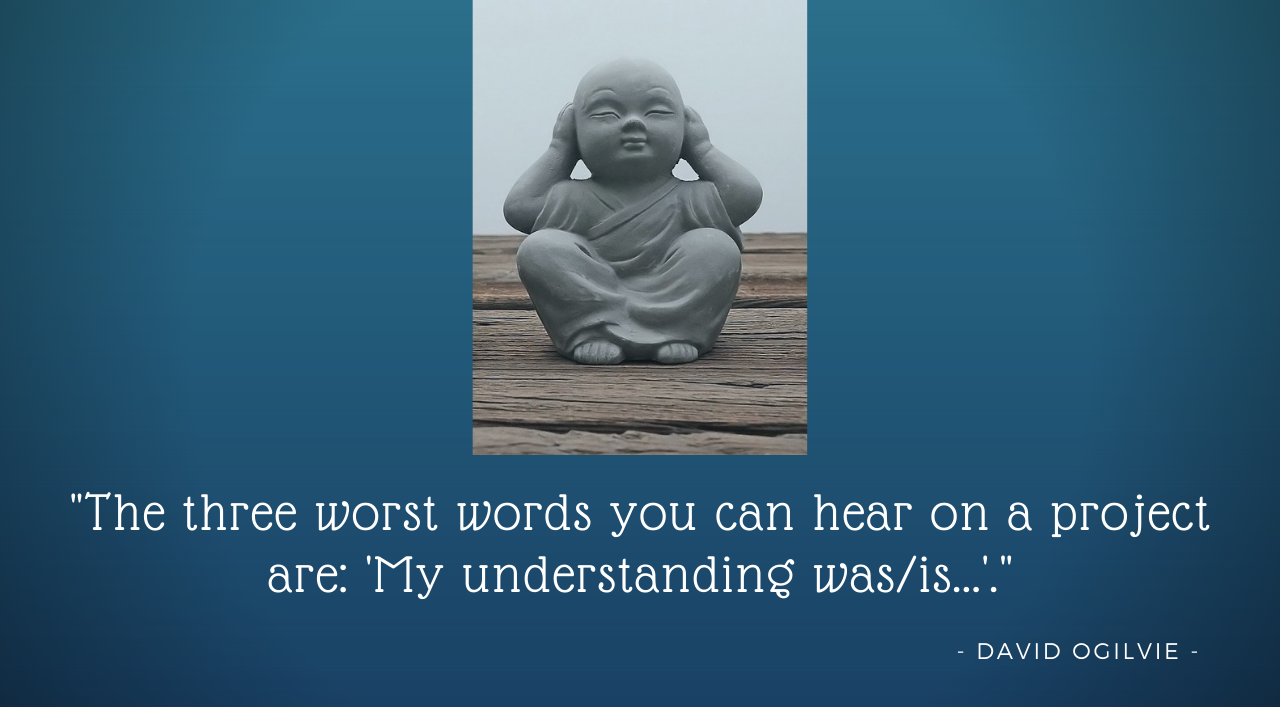
Who is really listening?
It was 6:00am one Wednesday morning recently and I was on a regular zoom call with other consulting associates of mine. We meet regularly as a master mind group to assist each other with our business growth and personal support network. We come from a wide variety of locations across the world, so it also helps with gaining an understanding of what is happening in business across the world. I took the view a long time ago that if the best sports people in the world all have coaches to help them, even though they are very good at what they do, then every business needs a coach no matter how successful you are. Including me.
On this call we were discussing clients and what the traits were of successful engagements. We discussed how sometimes when clients take our advice how successful the outcomes have been, and why is it that there are times when they don’t? We all had lists of clients where we had provided advice but for some reason the client makes the decision to ignore it completely or, and often worse still, half implement it and adjust it based on what modifications they want to make. These changes or modifications to the advice are generally driven by some personal bias or because the action makes them feel uncomfortable in some way, often because they feel it will expose a personal weakness of their own.
This comes to mind because recently I have experienced two projects where the senior executives of the companies had heard the words I used but made the decision to ignore what I was saying. Now I risk potentially exposing a little too much of myself here but I was seriously considering, “What is wrong with the way I express this advice that will make it more impactful for them? What is it I am doing that prevents the message resonating?” I have always worked on self improvement and it is, sometimes to my own detriment, a default position to look at what I can do better to improve this situation or make this more impactful rather than take what I feel can be an overly arrogant position of, “It’s the client’s fault they don’t get it”.
I have come to realise that no matter what you say there are times where the client has to learn the lessons for themselves. What I don’t understand is “If you don’t want to listen to and adopt advice that is given, why do you engage someone to provide it to you?”
This can manifest in many different ways, especially in complex projects like an ERP implementation or business transformation project. The three worst words you can hear on a project are: “My understanding was/is”. When this happens it is clear deep misunderstanding is present. Why this occurs is a complex matter but I do believe it is a symptom of our modern workplace. People are constantly distracted by text messages either on their phone, MS Teams, Slack or whatever organisational messaging service you use. I am a firm believer in being truly present in meetings and workshops in the projects I run. It is common that phones are turned off and people are required to stay for the duration of the meeting. Unfortunately in today’s workplace this is not common practice and in my opinion is missing the mark. I firmly believe preventive action trumps contingent action and if you are hearing those three dreaded words, your preventive action has failed.
While I am diving into the rabbit hole of language and its impact: One of the other words or phrases in the English language I would like to see removed is, the theoretical or opinionated “SHOULD”. All too often on projects I hear people who seriously don’t know say things like, “This system SHOULD do this” or “This SHOULD be able to connect to …” or “I SHOULD be able to simply click here and …”. No other word in the English language has such a strong negative connotation and has no basis in fact or reality. I should get my projects to stop using the word should.
If you or anyone you know is looking to:
- improve the way their business operates;
- improve the way they leverage their current system;
- replace their current system;
then give me a call for a confidential discussion on the best way to achieve this.
Sincerely,
David